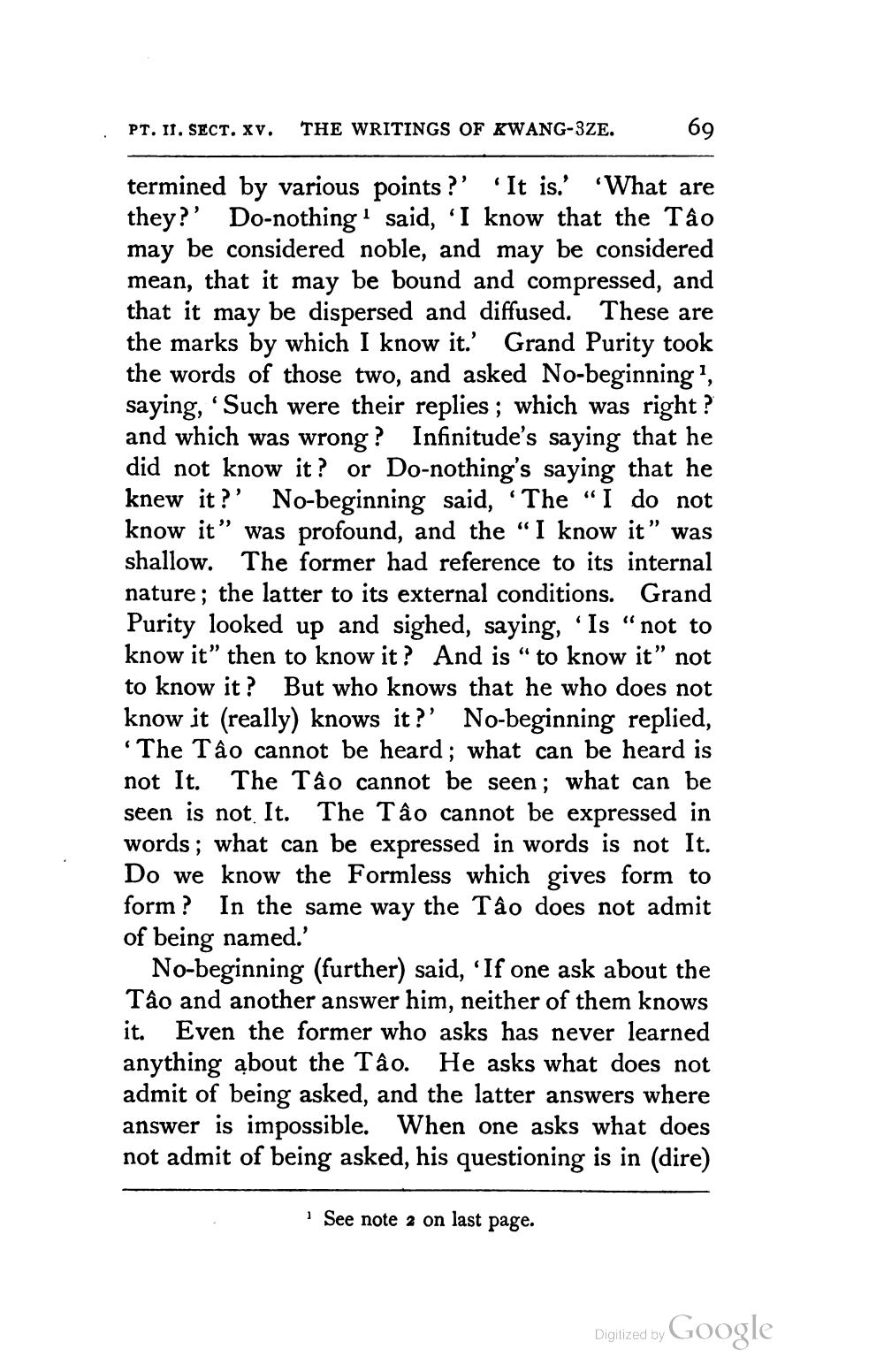________________
PT. II. SECT. XV.
THE WRITINGS OF KWANG-3ZE. 1
69
termined by various points ?' 'It is.' 'What are they?' Do-nothing said, 'I know that the Tao may be considered noble, and may be considered mean, that it may be bound and compressed, and that it may be dispersed and diffused. These are the marks by which I know it.' Grand Purity took the words of those two, and asked No-beginning", saying, 'Such were their replies ; which was right? and which was wrong? Infinitude's saying that he did not know it? or Do-nothing's saying that he knew it?' No-beginning said, “The “I do not know it” was profound, and the “I know it” was shallow. The former had reference to its internal nature; the latter to its external conditions. Grand Purity looked up and sighed, saying, 'Is “not to know it" then to know it? And is "to know it" not to know it? But who knows that he who does not know it (really) knows it?' No-beginning replied, 'The Tâo cannot be heard; what can be heard is not It. The Tâo cannot be seen; what can be seen is not It. The Tâo cannot be expressed in words; what can be expressed in words is not It. Do we know the Formless which gives form to form ? In the same way the Tâo does not admit of being named.'
No-beginning (further) said, 'If one ask about the Tâo and another answer him, neither of them knows it. Even the former who asks has never learned anything about the Tâo. He asks what does not admit of being asked, and the latter answers where answer is impossible. When one asks what does not admit of being asked, his questioning is in (dire)
i See note 2 on last page.
Digitized by Google




